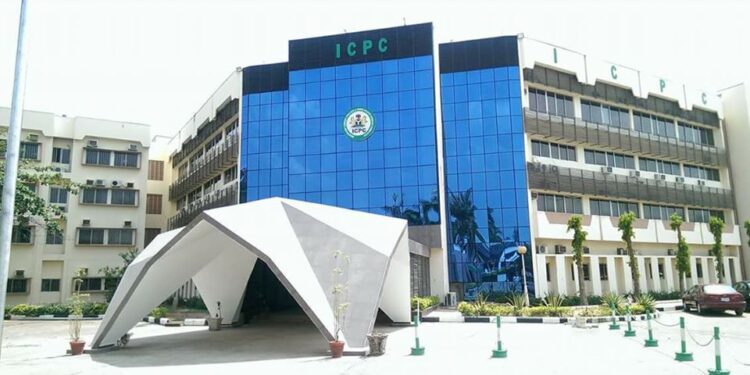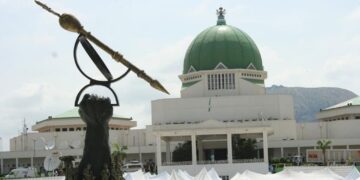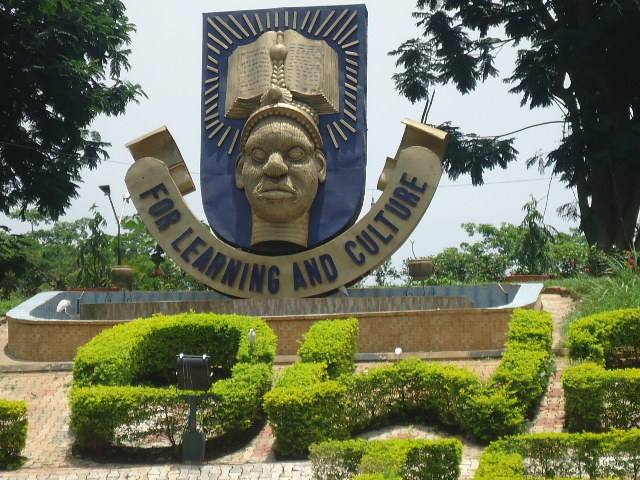[ad_1]
Professor Bolaji Owasanoye, Chairman of the Independent Corrupt Practices and other related offences Commission (ICPC), on Wednesday, tasked the Federal Government as well as the National Assembly on the need to discard completely confidential clauses that forbid the operators of the extractive industry especially oil and gas industry from disclosing terms negotiated with Multinational Corporations (MNCs).
Professor Owasanoye, who gave the charge during the ‘Legislative Transparency & Accountability Summit with a focus on the oil and gas sector, held at the instance of the House of Representatives Committee on Anti-Corruption chaired by Hon. Dachung Bagos, averred that despite the passage of the Petroleum Industry Act (PIA) and privatisation of Nigerian National Petroleum Corporation (NNPC), Nigeria indeed remains vulnerable to corruption of the process, illegal exploitation of natural resources and of course, tax evasion.
While giving a vivid account of the level of impunity being perpetuated in the industry, the ICPC Chairman underscored the need to ensure transparency and accountability of the commonwealth in the extractive industry.
Professor Owasanoye maintained that the theme of the conversation is appropriate because corruption and opacity of operations, incompetent governance, fraudulent revenue management and insensitive treatment of environmental and host community issues have over the years undermined the benefit of the God-given natural resource to the host communities in particular and Nigeria in general.
“The passage of PIA and the full privatisation of NNPC is but a small first step in a marathon race towards attaining the benefit of reforms.
“The challenges in the sector are aptly demonstrated by recent public revelation of what many players in the sector knew was happening all along viz the diversion or to put it boldly outright theft of oil revenue by conspiracy and collaboration of the private and public sector players.
“This revelation was by no less a person than the GMD of newly privatised NNPC. The poor governance structure in the sector has over the years fuelled many anomalies including the menace of Illicit Financial Flows in the sector.
“I will speak briefly about this and ICPC’s efforts in tackling these problems by identifying the fundamental and structural issues that enable them; proffering solutions and aiding the building of political will needed to ensure successful outcomes
“I will not bore you with the well-known relevance of the Oil & Gas Sector to the Nigeria economy: accounts for 65 per cent of government revenue; more than 90 per cent of foreign exchange earnings; more than 99 per cent of extractive industry revenue.
“On account of these indicators, Nigeria accounts for the highest IFFs from Africa with a concentration in the extractive sector. The oil and gas sector accounts for 92.9 per cent of IFFs from Nigeria (AU-ECA HLP Report).
“By implication to effectively and significantly reduce the menace of IFFS from Nigeria, we must focus on the extractive industry especially the oil and gas sector. As I said earlier the first step is a new legal and regulatory framework which has been achieved with PIA.
“But laws do not implement themselves. The culture that undermined the previous legal regime can easily undermine the new legal regime if we are not conscious to faithfully implement and oversight role players in the sector.
“Therefore, in other to deepen transparency in the Oil and Energy Sector, I recommend the following conscious and consistent actions: consistent and transparent audits. Recall that for years NNPC never published an audit of its accounts until this administration and I believe under Mele Kyari. The audit recommended is Financial Audit, regular physical assets Audit, process Audit for continuous improvement of process.”
The ICPC Chairman also harped on the need for the “review and update of contract negotiation practices. Many of the Clauses and agreements that facilitate IFF were consciously ‘negotiated’ by the government and NNPC line officers. Some of these negotiators were not experts in their field and so made concessions against government interest. Terms of Contracts Agreements/Clauses should be very explicit and in clear language to avoid any form of ambiguity.
“More importantly we must discard completely confidential clauses that forbid the operators or government from disclosing terms negotiated with parties. Given the fact that these agreements are about natural resources being public patrimony and assets confidential clauses that fuel corruption and abuse should be totally outlawed.
“Discretionary Powers/Excessive discretion in granting incentives should be checked/curtailed. This is partly addressed by the passage of PIA as one expects NNPC to maximise its advantages being a player with economic and profit incentives and objectives.
“The extant risk lies in the possible overbearing influence of government though in the shadows but nevertheless being there because government is the largest shareholder. Even if government were not in the shadows extant constitutional and statutory provisions regarding entities in which government has shares remain a trigger for abuse.
“It is expected that with the new PIA regime there will be more transparent and mandatory disclosure on the fiscal governance side. Corporate governance rules alone will not achieve the standard required because government as main shareholder is a bad businessman.
“I will suggest that privatisation of NNPC does not eliminate extractive industry transparency standards of ‘publish what you pay’ — oil, gas, and mining companies disclosing the revenue payments they make to NNPC and stakeholders including legislature and CSOs; ‘publish what you earn’ – government disclosing the revenues received from extractive companies; and ‘publish what you spend’ —government publishing full budget expenditures.
“To strengthen transparency we need legislation for statistical reporting for all oil, gas, and mining companies to publicly disclose revenue received and paid.
“Hopefully consistent application of these measures should improve governance. Together, these steps form a package that enables citizens to hold their governments to account for the use of energy revenues, thereby increasing the government’s legitimacy and
credibility.
“The final point is the need for stronger oversight of the operations especially commercial and tax obligations of MNCs. Aggressive tax avoidance by MNCs is costing Nigeria much in IFFs and this must be addressed. Some MNCs falsify trade records, fuel transfer pricing, inflate operational costs and retain on the payroll as expatriates – staff who work remotely but make huge emoluments claims for these among other anomalous practices.
“The privatisation of NNPC does not protect it from being a victim of sharp business practices by its MNCs trading partners, NNPC and Nigeria, therefore, remains vulnerable to corruption of the process, illegal exploitation of natural resource and of course tax evasion.”
In his address, Speaker of the House of Representatives, Hon. Femi Gbajabiamila affirmed that oil and gas industry has played a critical role in the economy of Nigeria over the past six decades.
According to him, the industry has provided thousands, perhaps even millions, of jobs directly and indirectly. Income from oil and gas has funded the administration of government, national defence and the development of public infrastructure to the tune of hundreds of billions of dollars over the years.
“He however noted that: “amid this evolving paradigm, the oil and gas industry still faces unique challenges here at home. Due to theft and various acts of economic sabotage, we are experiencing a massive decline in crude oil production and export volume.
“Our country is the victim of bad actors determined to achieve great personal wealth at our collective expense. At a time of severe financial constraints, the perpetrators of this brazen heist threaten our ability to meet the demands of governance and nation-building. Their actions effectively amount to treason against our country, for which they must be held accountable,” he stressed.
ALSO READ FROM NIGERIAN TRIBUNE
[ad_2]







